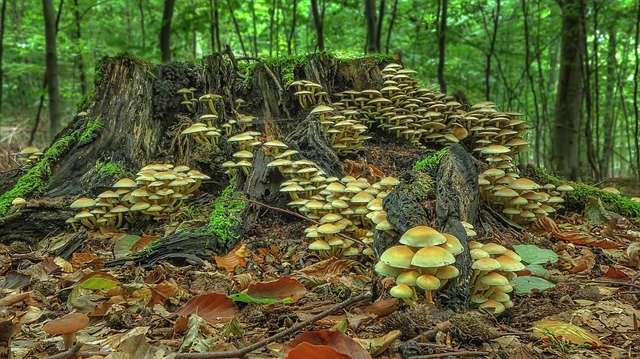In these times of physical distancing precipitated by the Coronavirus, we can feel the need for connection more than ever. We readily recognise the importance of social connection, our connection to other people, for our mental health and wellness, but often overlook our very real connection to nature and the physical world.
Connection in nature
Time-lapse photographer, filmmaker and producer, Louis Schwartzberg, reminds us that every living creature relies on other living creatures for its continued existence. He illustrates this concept through his recent film, Fantastic Fungi, where he shows how the mycelium network mirrors the internet in its pervasiveness above and under the ground. Mycelium is the vegetative branchlike structure that fruits to produce mushrooms and other fungi. They are critical to the “terrestrial and aquatic ecosystems” because of their role in decomposing organic material and contributing carbon dioxide to the atmosphere. They are invisible but cover massive areas. providing nutrients to the fungi and serving as “biological filters” – a term developed by world famous mycologist Paul Stamets who was a significant contributor to Louis’ film. In a recent TED© talk, Paul described six ways mushrooms can save the world, including treating viruses.
Louis, commenting on his movie, Fantastic Fungi, said that the real surprise for him in making the film about mycelium was the pervasiveness of connection. He said that in these times of physical distancing (social isolation and social distancing), people are realising that what they want most is connection. In Louis’s view, the core idea emerging from the film is that “connection is really nature’s instruction”.
Our connection to nature
In Fungi Day Live, Louis led discussions with co-author, Paul Stamets; Jeremy Narby – anthropologist and author; Francoise Bourzat – author of Consciousness Medicine; and Jason Silva – filmmaker, author and creator of the FLOW SESSIONS podcast. In discussing his short connection video, Jason explains that films provide a unique connection – enabling people to see the world from someone else’s perspective, to get inside their heads. He firmly believes that his role as filmmaker is to share his insights, engage in “intersubjective communion with other people” and provide an experience of connection that is “beyond language”. He cited astrophysicist, Neil de Grasse Tyson, to reinforce his passionate commitment to communicate about connection:
We are all connected. To each other biologically. To the earth chemically. To the rest of the universe atomically.
Paul Stamets maintains that the Coronavirus is a result of our destruction of the “immune system of the environment” through deforestation, pollution, monoculture and other non-economically and non- ecologically sustainable solutions. Like the other presenters in Fungi Day Live, he asserts that we have failed to understand and respect nature – our source of inspiration, energy, wellness and breath. Jeremy, too, maintains that we have become disconnected from nature and live our lives in cement blocks and travel around in “glass-and-metal-bubbles”.
Reflection
These filmmakers, authors and researchers have spent a lifetime exploring, understanding and sharing about nature and its interconnectedness and our connection to it. As Florence Williams asserts, we are suffering from “nature-deficit disorder” and separation from the healing benefits of nature. Johann Hari argues that reconnection with nature and with each other is a means of overcoming depression and childhood trauma. We can grow mindfulness through nature and experience its many physical and psychological benefits, including calmness and the experience of connection. Lulu & Mischka provide us with one way to do this through their mantra meditations, including their “stillness in motion” mantra they sing while sailing with the whales.
____________________________________________
Image by Michi-Nordlicht from Pixabay
By Ron Passfield – Copyright (Creative Commons license, Attribution–Non Commercial–No Derivatives)
Disclosure: If you purchase a product through this site, I may earn a commission which will help to pay for the site, the associated Meetup group and the resources to support the blog.

